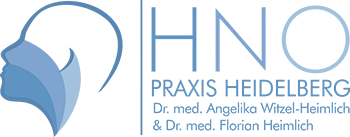- Mon - Thu:
- 08:30 - 12:00, 14:30 - 18:00
- Fri:
- 08:30 - 12:00
- Mon - Tue; Fri:
- 08:30 – 12:00
- Wed:
- 14:30 – 18:00
- Mon - Fri:
- 08:30 – 10:30
(Capacity limited – we ask that you register by telephone)
Ear, body and head acupuncture
Acupuncture may reduce or eliminate symptoms in a large number of illnesses without causing any side effects.
Dr. med. Florian Heimlich holds the B-diploma for acupuncture as well as the additional title of acupuncture and has thus acquired full training.
What does acupuncture treat?
As a regulation therapy, acupuncture treats all functional, vegetative, nervous and regulation disorders which are in principle reversible, such as:
- Migraines, headaches from various causes, facial pain, trigeminal neuralgia
- Tinnitus and hearing disorders
- Dizziness
- Allergies, weak immune system
- Disorders of sight, smell and taste, chronic bronchitis
- Facial nerve paresis
- Sleep disruptions, tension, digestive disorders
- All pain in the musculoskeletal system e.g. cervical spine syndrome, tennis elbow, etc.
- Addiction problems, e.g. smoking cessation
- Tennis elbow, chronic lumbar spine and knee complaints
There are some special types of acupuncture. These include ear acupuncture, hand and foot acupuncture and head acupuncture. These branches are referred to as microsystems. In other words: Like reflexology zones, they represent the entire body in a small area.
Alternatives to traditional acupuncture include laser acupuncture and electro-acupuncture, whereby the points are stimulated using light or electromagnetic waves. Some therapists also combine homeopathy with acupuncture. This involves injecting complex homeopathic remedies into the appropriate acupuncture points. This referred to as injection acupuncture or mesotherapy.
The effects of acupuncture
- pain-reducing
- balancing – regulating (on the physical and mental levels)
- relaxing – soothing
- stimulating to the immune system – immunomodulatory
- activating to motor system, e.g. in paralyses
- regulating to muscle tone
- stimulating to blood flow
- mentally balancing
- impacting on psycho-neuro-endocrine system
- decongesting
Questions and answers on acupuncture
- How often are acupuncture treatments administered?
- Usually twice per week, up to once a day in acute cases
- How long does the treatment take?
- Generally 30 minutes (in silence), depending on the type of condition
- How long is a course of acupuncture treatment?
- On average from 10 to 15 sessions, depending on the body’s ability to react, the duration of the illness and the patient’s age
- Where are the needles inserted?
- Acupuncture is a holistic medicine, therefore the needles are inserted not only at the location of the disorder itself but throughout the body
- How many needles are inserted?
- In most cases, a maximum of 15 needles per treatment
- Are there any side effects?
- No – potential reactions are a sign of a transition in the body (temporary deterioration, activation of inflammation sites)





